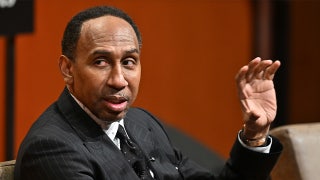9/11 first responder fears worsen as coronavirus restrictions loosen
Rob Serra, a 9/11 survivor who has suffered from related illnesses ever since that tragic day, says it’s not just 9/11 first responders who are living in fear of the coronavirus, thousands of New Yorkers who were living, working and going to school in the collapse zone are all at a higher risk for the deadly virus as well.
Every day is a struggle for those who survived the Sept. 11attacks on the World Trade Center, but things only got worse for those first responders when the coronavirus arrived in the United States.
“We just immediately started bunkering down and stocking up on food and stuff. We knew it was a respiratory infection and something I didn't want to get, so my wife, she took precautions even before the government mandated it," Rob Serra, a retired New York City Fire Department (NYFD) firefighter and member of the Board of Directors for the Ray Pfeifer Foundation, told Fox News.
CORONAVIRUS UNABLE TO STOP THE 9/11 MEMORIAL AND MUSEUM FROM KEEPING THEIR PROMISE TO 'NEVER FORGET'
Serra’s first day on the job with the NYFD was Sept. 11, 2001. After donating a pint of blood, he rushed to the World Trade Center only to be met with the dust and the falling remains of the Twin Towers. He and other firefighters took shelter in the Battery Tunnel before digging their friends out of the rubble.
Since February, the retired firefighter has been taking shelter in his Staten Island basement as an extra precaution because he is particularly vulnerable to the coronavirus. Serra has suffered several from multiple 9/11-related illnesses like autoimmune and respiratory issues. Even as New York State loosens restrictions and stay-at-home orders, the 40-year-old is still living in fear of the virus for not only his own health, but the health of other 9/11 survivors.
During the COVID-19 shutdowns, the 9/11 health program had to transition from in-office visits to telemedicine and virtual e-visits.
“That's where a lot of guys get diagnosed," Serra said, referring to in-office doctor appointments. "They say that early diagnosis is our best chance of survival and for the last three months [we haven’t been able to be tested]."
For those who have been diagnosed with 9/11-related cancers, they face the choice of either not getting treatment or getting treatment but potentially increasing their COVID-19 risk while going to medical centers for treatment.
“We've lost dozens to the pandemic, but we're dying at a rate of one every two days as it is. That's pretty staggering when you think about it. And it's people of all ages,” Serra said.
Serra also doesn’t want the American public to forget about the thousands of people who lived, worked, and went to school in the area.
AMID CORONAVIRUS, ECHOES OF 9/11 FOR BROTHER FOR FALLEN FIGHERFIGHTER
“Nineteen thousand school students who were in the dust zone who were sent back to school. There's all the people who work there. You know, it's not just the first responders,” Serra added, “There are 9/11 first responders all over the country and I don't think people realize that.”
There are people enrolled in all 50 states for the James Zadroga 9/11 Health and Compensation Act, which provides health monitoring and financial aid to survivors of the Sept. 11 attacks. What medical bills the Act does not cover the Ray Pfeifer foundation steps in and helps pay the rest.
To keep those 9/11 survivors with elevated risk from coronavirus safe, Serra wants everyone to continue to follow easy steps that will help prevent the spread of the virus.
“Wearing a mask is paramount. Doing your best to clean your hands and socially distance yourself from people I think is something you can do."









































